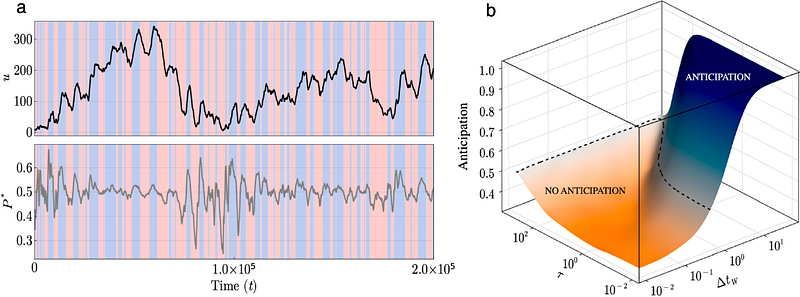A Minimal Genetic Circuit for Cellular Anticipation

A Minimal Genetic Circuit for Cellular Anticipation
Pla-Mauri, J.; Sole, R.
AbstractLiving systems have evolved cognitive complexity to reduce environmental uncertainty, enabling them to predict and prepare for future conditions. Anticipation, distinct from simple prediction, involves active adaptation before an event occurs and is a key feature of both neural and non-neural biological agents. Recent work by Steven Frank proposed a minimal anticipatory mechanism based on the moving average convergence-divergence principle from financial markets. Here, we implement this principle using synthetic biology to design and evaluate minimal genetic circuits capable of anticipating environmental trends. Through deterministic and stochastic analyses, we demonstrate that these motifs achieve robust anticipatory responses under a wide range of conditions. Our findings suggest that simple genetic circuits could be naturally exploited by cells to prepare for future events, providing a foundation for engineering predictive biological systems.